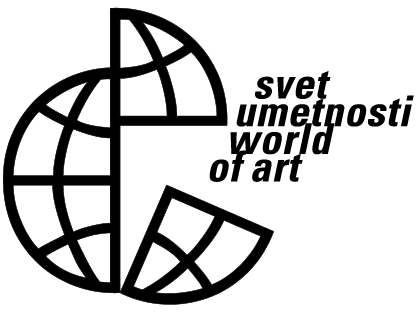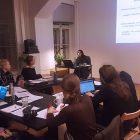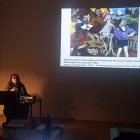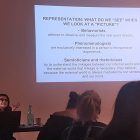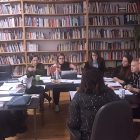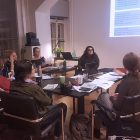Suzana Milevska: WRITING ABOUT, WITH, AND OUTWARDS ART
World of Art | Year 17 | Parallel Systems. Establishing and Forming Media Art
Workshop
Wednesday, 20 November 2019, 4 – 8 pm
Thursday, 21 November 2019, 4 – 8 pm
Project Room SCCA, Metelkova 6, Ljubljana
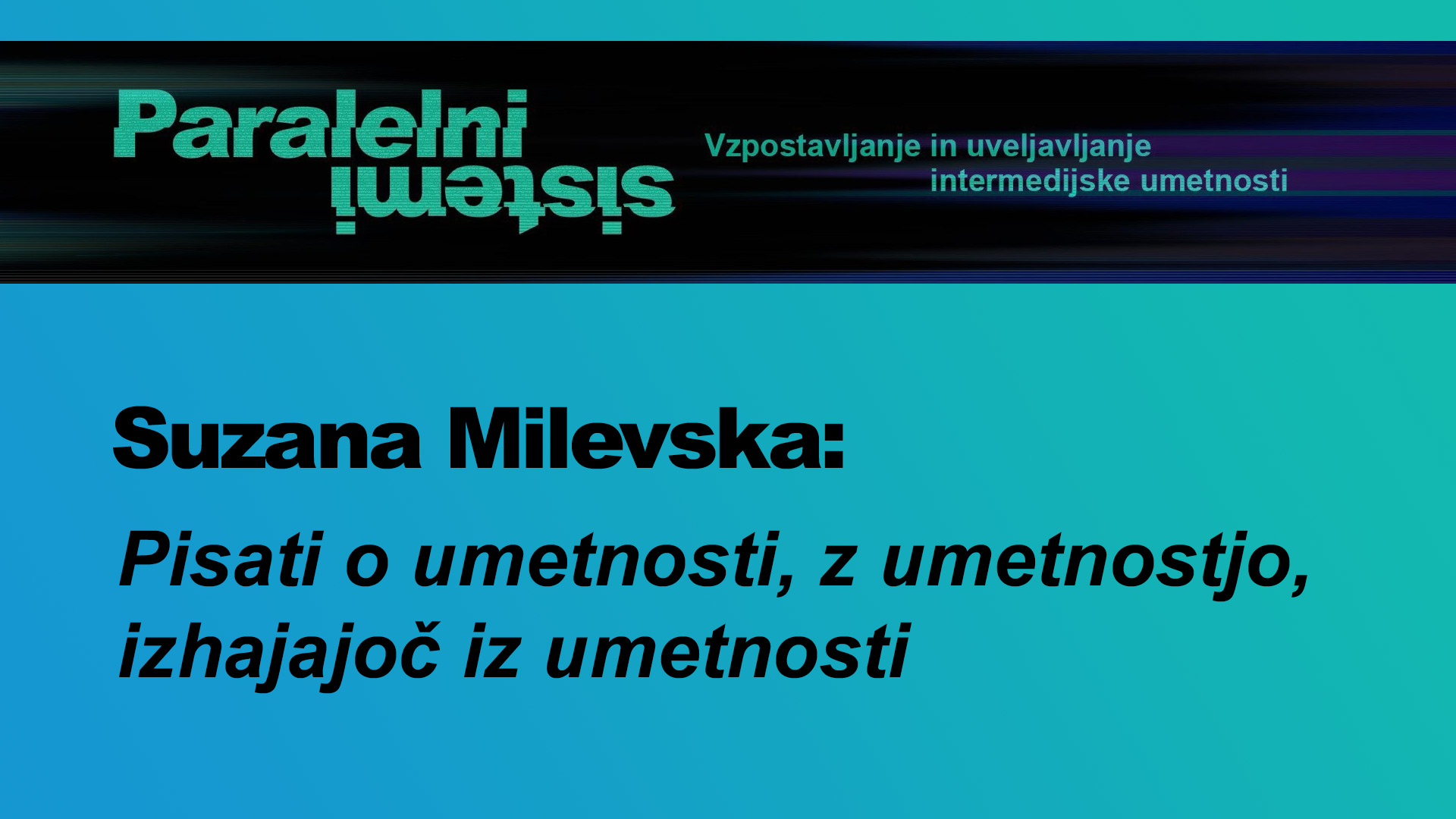
The lecture and workshop will address the complexity of different genres of writing about, with, or outwards art. It offers an insight in the strategies of various genres of texts that accompany exhibitions of new media art or are written and published independently – in other publications – about the same art works, in attempt to find an equivalent relation between words and art objects that are not material nor traditionally produced.
During the different sessions we will discuss what makes these texts different from each other and for theoretical academic writing about art and from other textual genres. The focal point of analysis is going to be the writer’s positioning towards the media work of art. Two different genres: a preface to an exhibition’s catalogue – text written specifically for an exhibition catalogue, by the curator or by an invited writer, and critical reviews about art will be addressed separately, and will be dealt with from historical, contextual and validating point of view and in the context of different disciplines (e.g. relational aesthetics or sociology of spectatorship). We will seek to weigh in the responsibility of the writer to establish the relation between the words in the preface to an exhibition catalogue and the art work, a text which the writer bequeaths to history, and how this relates to the writer’s position and responsibility when writing a critical review.
Catalogue text is a piece of interdisciplinary and performative writing. Most importantly each exhibition has a certain concept and use of media that need to be clarified with the catalogue essay so these texts differ and are difficult to preconceive and prescript a strict methodology and strategy. However, there are other requirements that a thorough catalogue essay needs to fulfil. On the one hand, many relevant data need to be clearly presented throughout the text so often takes a long research to collect and select the necessary information. On the other hand, the catalogue text is a text after all so each writer has to find his/her own voice through the process of writing. Therefore the writing of the catalogue text happens by a performative entanglement of three radically different aspects: the extrapolation of the concept, collecting and analysis of necessary information (about the works, or issues related to the exhibition) and the personal quest for one’s own unique voice (of the writer/curator). It is far from pure description or retrieval of the artistic concepts and expressions. The already existing different exhibition models (individual, monographic, retrospective, thematic, historicised, or biennial international exhibitions), as well as the recent development of different exhibition models (on-line, collaborative, participatory, etc.) require re-thinking of the genre itself. Critical texts are genre on their own. The main questions of this lecture and workshop are therefore how should one adapt and change the writing methods, forms, vocabulary, etc., when writing different texts and how this affects the writer’s position.
SHEDULE:
Wednesday, 20 November 2019, 4 pm
Close reading workshop
Thursday, 21 November 2019, 4 pm
Individual writing time, discussion
To participate in the workshop, please send an application: info@scca-ljubljana.si. The cost of 2-day workshop is 15 EUR.
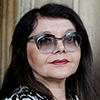 Suzana Milevska is a theorist and curator of art and visual culture from North Macedonia. Her theoretical and curatorial interests include postcolonial and feminist critique of representational regimes of hegemonic power in arts and visual culture, and collaborative and participatory art practices in marginalized communities. Milevska was the first Endowed Professor of Central and South Eastern European Art Histories (2013–2015, Academy of Fine Art Vienna) and she taught history and theory of visual art (2010–2012, Faculty of Fine Arts Skopje). She initiated and directed the Centre for Visual and Cultural Research Skopje (2006–2008). She holds a Ph.D. in Visual Cultures from Goldsmiths College London. Milevska was a Fulbright Senior Research Scholar in Library of Congress. She curated the project The Renaming Machine (2009–2011, Ljubljana, Zagreb, Vienna) and the Roma Protocol (Vienna), and Call the Witness, (Utrecht, 2011). She was the initiator of Call the Witness – Roma Pavilion (Venice Biennale, 2011). She published the book Gender Difference in the Balkans (2010) and edited The Renaming Machine: The Book (2010), and On Productive Shame, Reconciliation, and Agency (2016). In 2015 she co-curated the exhibition Inside Out – Not So White Cube (with Alenka Gregorič). Milevska is the recipient of the Igor Zabel Award for Culture and Theory (2012). (Photo: Corn, Der Standard)
Suzana Milevska is a theorist and curator of art and visual culture from North Macedonia. Her theoretical and curatorial interests include postcolonial and feminist critique of representational regimes of hegemonic power in arts and visual culture, and collaborative and participatory art practices in marginalized communities. Milevska was the first Endowed Professor of Central and South Eastern European Art Histories (2013–2015, Academy of Fine Art Vienna) and she taught history and theory of visual art (2010–2012, Faculty of Fine Arts Skopje). She initiated and directed the Centre for Visual and Cultural Research Skopje (2006–2008). She holds a Ph.D. in Visual Cultures from Goldsmiths College London. Milevska was a Fulbright Senior Research Scholar in Library of Congress. She curated the project The Renaming Machine (2009–2011, Ljubljana, Zagreb, Vienna) and the Roma Protocol (Vienna), and Call the Witness, (Utrecht, 2011). She was the initiator of Call the Witness – Roma Pavilion (Venice Biennale, 2011). She published the book Gender Difference in the Balkans (2010) and edited The Renaming Machine: The Book (2010), and On Productive Shame, Reconciliation, and Agency (2016). In 2015 she co-curated the exhibition Inside Out – Not So White Cube (with Alenka Gregorič). Milevska is the recipient of the Igor Zabel Award for Culture and Theory (2012). (Photo: Corn, Der Standard)
Photo: SCCA-Ljubljana archive
Series Parallel Systems. Establishing and Forming Media Art is organised by School for Curatorial Practices and Critical Writing World of Art (SCCA-Ljubljana) and Igor Zabel Association for Culture and Theory in partnership with the ŠUM journal, Goethe-Institut Ljubljana, The Cultural Center of the Embassy of the Republic of Hungary in Slovenia, the Balassi Institute Ljubljana, Museum of Modern Art/Moderna galerija and Trubar Literature House.
The programme is supported by: City of Ljubljana – Department for Culture, Erste Fund and Zaklada Kultura nova.
This project is a part of Associated programme of 26th Biennial of Design, organised by the Museum of Architecture and Design and Center for Creativity. Centre for Creativity is co-financed by European Union from European Regional Development Fund and by Republic of Slovenia.
![]()
![]()
![]()
![]()
![]()
![]()
